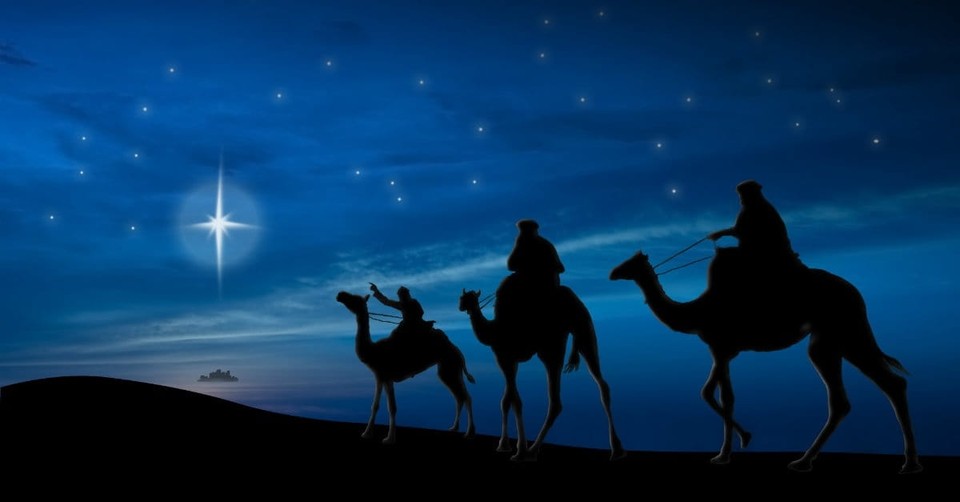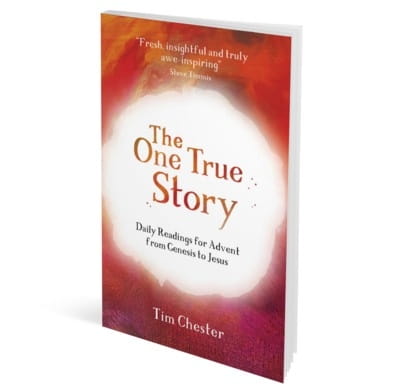What is the Hope of the Nations?

“Magi from the east came to Jerusalem and asked, ‘Where is the one who has been born king of the Jews? We saw his star when it rose and have come to worship him.’”
Matthew 2 v 2
Storyline
Genesis 11 v 1-9; Matthew 2 v 1-12 and Luke 2 v 22-35
Santa Claus is a Dutch version of St. Nicholas, who was a Turkish bishop. Decorated trees come from Germany, supposedly introduced to Britain by Prince Albert, Queen Victoria’s husband. The date of December 25th was probably chosen to replace Roman mid-winter festivities.
The tradition of wrapping a red ribbon round an orange and sticking a candle in the top to create a “Christingle” was invented in 1747 by John de Watteville, a Moravian pastor. The British can take the credit (or blame) for Christmas cards, created to promote the postal service.
Our contemporary Christmas is a truly international affair.
Now the whole world had one language and a common speech. As people moved eastward, they found a plain in Shinar and settled there. Genesis 11 v 1
So begins Genesis 11. Adam and Eve were sent east out of Eden. Their son Cain was exiled east of Eden. And here humanity was still moving eastward, away from God.
God commanded humanity to fill the earth. Had they done so, then a diversity of cultures and languages would have developed. But instead, humanity comes together on the plain of Shinar. They refuse to scatter (v 4). So instead of diversity, there is just “one language and a common speech”. It’s the first declaration of empire, and empires ever since have tried to impose uniformity on their subjects.
Then they said, “Come, let us build ourselves a city, with a tower that reaches to the heavens, so that we may make a name for ourselves.” v 4
Humanity was made in the image of God to reflect God’s glory in the world. But instead, the whole world comes together in defiance of God for its own glory.
Meanwhile, the Lord “came down to see the city and the tower the people were building” (v 5). Humanity says, “Come, let us ... [reach] to the heavens”. In response the triune God says, “Come, let us go down” (v 7). God comes down to judge humanity. He confuses their language, forcing them to scatter. The place is called “Babel”, which sounds like “confused” in Hebrew. Think of the word “babble” and you get the idea. As a result, God accelerates the command to fill the earth and develop diverse cultures.
Today we live with this wonderful diversity of cultures. Just think of the food you enjoy. Italian pasta. Indian curry. French casseroles. Mexican fajitas. British cakes. What’s not to love?! But along with this diversity we get division: racism, discrimination, war.
At the first Christmas, the triune God again says, Come, let us go down. But instead of God coming down to judge humanity, he comes down in the person of Jesus to save humanity. And to unite us in a new humanity.
That’s the meaning of the Magi. Matthew’s Gospel tells their story:
After Jesus was born in Bethlehem in Judea, during the time of King Herod, Magi from the east came to Jerusalem.
Matthew 2 v 1
Where do they come from? From the east! At Babel, humanity was moving eastward, away from God. Now humanity (represented by the Magi) are coming from the east, back to God. Matthew has just told us that the baby Jesus is “Immanuel”—God with us (1 v 23). The Magi come, not to make a name for themselves, but to bow down and worship God-in-Christ (v 11).
Jew and Gentile were divided by bitter centuries of hostility. But here in Bethlehem Mary, Joseph and the Magi stand together around God-in-the-manger. Here in miniature is a picture of the empire of Jesus. The peoples of the world are united in the worship of Christ.
So Matthew’s Gospel begins with the nations coming to worship Jesus. And it ends with Jesus telling his disciples to “go and make disciples of all nations” (28 v 19). Instead of coming together, Christians are sent out into the world. We are scattered throughout the earth to gather in the nations.
Jesus reverses the curse of Babel. Instead of the nations being scattered, they are brought together around his manger and around his throne. And that process is taking place through the mission of the church.
Simeon expresses the same message in Luke’s Gospel. Simeon was a “righteous and devout” man (Luke 2 v 25). He was waiting for “the consolation of Israel” and the Holy Spirit had revealed to him that he would not die “before he had seen the Lord’s Messiah” (v 25-26).
When Mary and Joseph brought Jesus to be consecrated in the Jerusalem Temple, Simeon took him in his arms. He was, Luke tells us, “moved by the Spirit” (v 27). He realised that this was the child who would fulfil the promise of God. As he held the infant Jesus close, Simeon described him as “a light for revelation to the Gentiles, and the glory of your people Israel” (v 32). Simeon was echoing Isaiah 49 v 6. The word “Gentiles” is the word “nations”. Jesus is the light not only of Israel, but of the world.
The empire of Jesus does not impose uniformity. This is not an empire of “one language and a common speech”. Instead there are people from every tribe, language, people and nation. It’s an empire that celebrates diversity. The Magi bring with them “treasures”— “gifts of gold, frankincense and myrrh”. The diversity of the nations is presented to God-in-the-manger just as one day “the glory and honour of the nations will be brought into” the city of the Lamb (Revelation 21 v 26).
Christmas is a great opportunity to invite people from other cultures to share your family Christmas, especially those, like refugees or international students, who feel far from home. Or perhaps this Christmas you could explore a Christmas tradition from another culture. But whatever you do and whoever you are, remember and marvel that brothers and sisters from every corner of the planet will be celebrating with joy the light of the world.
Meditate
Magi from the east came to Jerusalem and asked, “Where is the one who has been born king of the Jews? We saw his star when it rose and have come to worship him.”
I cannot tell why he, whom angels worship, Should set his love upon the sons of men. Or why, as Shepherd, he should seek the wand’rers To bring them back, they know not how or when. But this I know, that he was born of Mary, When Bethl’hem’s manger was his only home, And that he lived at Nazareth and laboured, And so the Saviour, Saviour of the world, is come.
I cannot tell how he will win the nations, How he will claim his earthly heritage, How satisfy the needs and aspirations Of east and west, of sinner and of sage. But this I know, all flesh shall see his glory, And he shall reap the harvest he has sown, And some glad day his sun shall shine in splendour When he the Saviour, Saviour of the world, is known.
(From “I cannot tell” by William Fullerton)
Prayer
Thou, whose almighty word
Chaos and darkness heard,
And took their flight;
Hear us, we humbly pray,
And, where the gospel day
Sheds not its glorious ray,
Let there be light!
Amen.
(From “Thou, whose almighty word” by John Marriott)

Tim Chester is a pastor at Grace Church, Boroughbridge, North Yorkshire, and a tutor with the Acts 29 Oak Hill Academy. He is the author of over 30 books, including Exodus For You, You Can Change, and The One True Light.
Image courtesy: Unsplash.com
Publication date: November 28, 2016
Originally published November 28, 2016.







